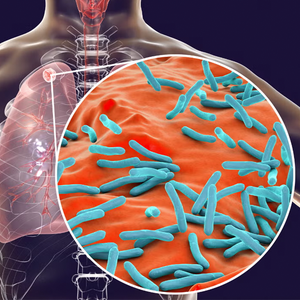
Glucose-6-phosphate Dehyrogenase Deficiency Mutation Panel
Glucose-6-phosphate Dehyrogenase Deficiency Mutation Panel
Glucose-6-phosphate Dehyrogenase Deficiency Mutation Panel
This assay tests for 5 common mutations in the G6PD gene, which is associated with glucose-6-phosphate dehydrogenase deficiency.
| Test Code | D0404 |
|---|---|
| Test Summary |
This assay tests for 5 common mutations in the G6PD gene, which is associated with glucose-6-phosphate dehydrogenase deficiency. |
| Turn Around Time | 10 - 12 days |
| Acceptable Sample Types | Dried Blood Spots |
| Acceptable Billing Types | Institutional Billing , Self (patient) Payment |
| NY Approved | Yes |
| CPT Codes** | 81247(x1) |
| Self (patient) Price | $170.50 |
|---|---|
| Institutional Price | $170.50 |
**The CPT codes listed are in accordance with Current Procedural Terminology, a publication of the American Medical Association, and are provided for informational purposes only. CPT coding is the sole responsibility of the billing party.
This testing service has not been cleared or approved by the U.S. Food and Drug Administration. Testing services may not be licensed in accordance with the laws in all countries. The availability of specific test offerings is dependent upon laboratory location.
Test information
Test description
This panel analyzes the c.376A>G (p.N126D), c.202G>A (p.V68M), c.376A>G (p.N126D), c.563C>T (p.S188F), c.1388G>A (p.R463H) , c.1376G>T (p.R459L) variants in the G6PD gene.
Condition description
Glucose-6-phosphate dehydrogenase deficiency is a genetic disorder that occurs almost exclusively in males. This condition affects red blood cells which carry oxygen from the lungs to tissues throughout the body. A defect in an enzyme called glucose-6-phosphate dehydrogenase causes red blood cells to break down prematurely (hemolysis) which can cause hemolytic anemia. It is estimated that 400 million people worldwide have glucose-6-phosphate dehydrogenase deficiency. (NIH, genetics home reference)
Test methods and limitations
Gene analysis for the various targeted mutations is performed by polymerase chain reaction and melting curve analysis to detect the mutant and wild type form of the gene. Sequence specific oligonucleotide probes are labeled with fluorescent dyes which hybridize to their complementary sequence target in PCR products. The fluorescence resonance energy transfer (FRET) from one fluorophore to another adjacent fluorophore is measurable and is directly proportional to the amount of target DNA generated during PCR. Allele specific melting curves are generated by slow thermal denaturing of the probe: template hybrid. Melting curves are generated by monitoring fluorescence over the course of denaturation and melting peaks are generated by plotting the inverse derivative of fluorescence versus temperature (−dF/dT).
Detailed sample requirements
Dried Blood Spots
| Collection Container(s) |
Dried blood spot card |
|---|---|
| Collection |
Follow kit instructions. Briefly, allow blood to saturate the card until indicated areas are filled and blood has soaked through the card. Air dry the card at ambient temperature for at least 3 hours.
|
| Sample Condition |
Follow the instructions provided with the collection set. Store the dried blood at ambient temperature for up to two days. If the specimen cannot be sent as soon as it is dry, the filter paper should be placed in a sealable plastic bag and stored in a refrigerator (≤ 8°C) or preferably in a freezer. |
| Shipping |
Follow kit instructions. Double bag and ship overnight at ambient temperature. |
Resources


How To Order
Choose Your Test
Select the correct test for your patient, and download and fill out the Clinical Genomics test requisition form.
Collect Sample
Obtain a sample for testing from the patient using one of the provided Revvity Omics test packs.
Send Samples
Send samples and all required forms back to Revvity for processing using pre-paid shipping label.
How can we help you?
We are here to answer your questions.




































